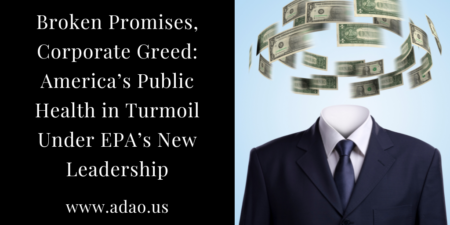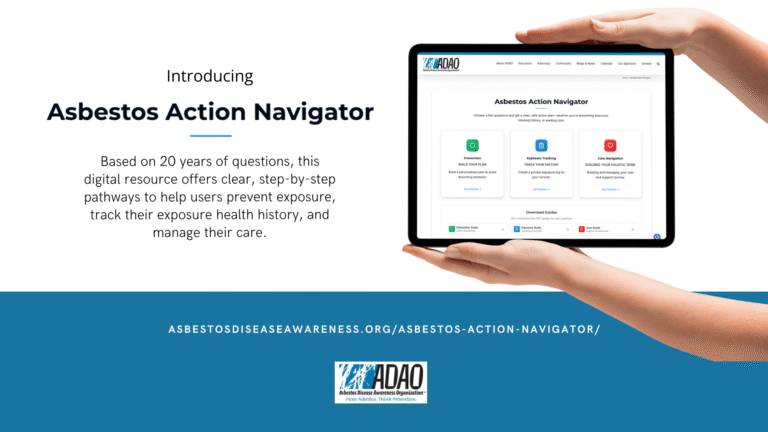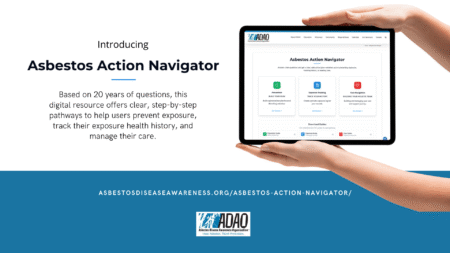Posted on January 23, 2025
As Americans face a turbulent environmental landscape fraught with corporate overreach and broken promises, the recent Environmental Protection Agency (EPA) appointments under President Trump’s administration underscore a grim reality: profit continues to take precedence over public health.
With figures like David Fotouhi, Nancy Beck, and Lynn Ann Dekleva set to return to the EPA, the agency entrusted to protect Americans from environmental dangers is once again being led and undermined by industry insiders and lobbyists. The actions of these appointees in their previous roles raise significant concerns about their dedication to the mission of the EPA.
A Troubling Legacy of Deregulation
David Fotouhi, Trump’s pick for EPA Deputy Administrator, epitomizes this issue. As a lawyer at Gibson, Dunn & Crutcher LLP, Fotouhi represented companies accused of harmful environmental practices and played a pivotal role in weakening essential protections. Among his industry-friendly actions, he authored the Alliance for Automotive Innovation’s (AAI) Amicus Curiae Brief in Support of Industry Petitioners, challenging the EPA’s Part 1 Chrysotile Asbestos ban.
The AAI brief is a broad attack on the rule, which uses scientific evidence to ban chrysotile asbestos. There is no safe level of exposure to asbestos, and all six fibers, including chrysotile, cause fatal illnesses, including mesothelioma, asbestosis, and cancers of the lung, ovaries, and larynx. The AAI brief, contrary to this overwhelming body of scientific evidence, denies that chrysotile asbestos presents an unreasonable health risk and recklessly claims that the respected scientists who peer-reviewed EPA’s asbestos risk evaluation manipulated the science to further their personal financial interests in testifying in civil litigation. This is both factually inaccurate and an abhorrent lie in an attempt to protect industry interests.
The United States Department of Justice and ADAO filed motions asking the Fifth Circuit to reconsider allowing the Alliance of Auto Innovators (AAI) brief to be entered; however, the Court denied our motions. The irresponsible AAI arguments undermine decades of work to eliminate a known carcinogen responsible for countless deaths from preventable diseases. If Fotouhi is confirmed as EPA Deputy Administrator, he should recuse himself or be barred from any role in decisions about the Part 1 Chrysotile Asbestos ban.
Fotouhi’s advocacy for industry interests runs deeper than just asbestos. He has supported measures that favor corporations over communities, including efforts to weaken water quality standards for polychlorinated biphenyls (PCBs and to classify coal ash ponds as “clean” despite their environmental risks). His nomination to serve as EPA’s second-highest official signals a broader rollback targeting critical regulations that protect Americans from toxins in their water, air, and soil.
The Return of Industry Allies
Joining Fotouhi are Nancy Beck and Lynn Ann Dekleva, both with deep ties to the American Chemistry Council, further cementing the chemical industry’s influence within the EPA. Beck, a former toxicologist for the council, has a track record of rewriting rules to limit regulation of “forever chemicals” like PFAS, which are linked to cancer and other life-threatening illnesses. Under her leadership during the first Trump administration, bans on dangerous substances like methylene chloride and asbestos were scaled back, prioritizing corporate profits over public safety. Her bias was so hard to ignore that the EPA’s policy-making experts spoke out publicly against the decisions she made when they were tasked with assessing the dangers of asbestos.
Similarly, Dekleva’s tenure was marked by systemic failures within the EPA. According to reports, the agency’s Office of Inspector General revealed that employees under her supervision were pressured to approve new chemicals based on less rigorous assessments, with retaliation against those who raised safety concerns. Such actions exemplify how industry influence can undermine the EPA’s mission to protect human health and the environment.
The Human Cost of Inaction
These appointments represent a sharp departure from the EPA’s Congressional mandate when they revised the Toxic Substances Control Act (TSCA) to empower the agency and the subsequent progress made under the Biden administration, which leveraged the new law and sought to strengthen chemical safety laws and enforce the first federal PFAS drinking water standards. The renewed influence of industry insiders threatens to dismantle these hard-won protections, leaving vulnerable communities to bear the burden of pollution and toxic exposure.
Dr. Phillip Landrigan, a leading public health expert, warns that reversing the asbestos ban and weakening chemical regulations would “expose working American women and men to a known human carcinogen,” breaking promises to safeguard the Americans the EPA was created to serve.
A Call to Action
Americans must demand accountability from their leaders and insist on an EPA that prioritizes people over profits. The agency’s mission—to protect human health and the environment—cannot coexist with the pervasive influence of industry lobbyists. While the new administration seeks to demonize government regulations, we continue to support these rules because they are implemented to protect the American people and save lives. Robust environmental policies and rejecting the revolving door between corporate interests and public institutions are essential.
The stakes are too high to remain silent. From asbestos to PFAS, the fight for a healthier, safer future depends on holding these officials accountable and resisting efforts to weaken the nation’s environmental protections. Together, we can ensure the EPA fulfills its promise to safeguard the health of all Americans by upholding and advancing the Frank R. Lautenberg Chemical Safety for the 21st Century Act—not merely protecting the bottom lines of powerful corporations.
Linda Reinstein



